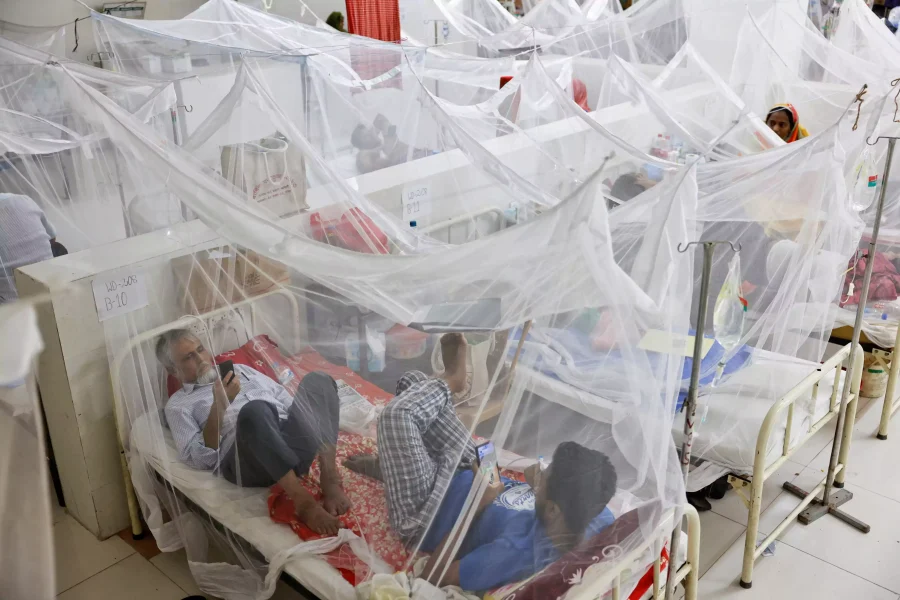Bangladesh is facing its worst dengue fever out-break on record. Nearly 600 people have died of the mosquito-borne tropical disease so far this year, and the country’s health-care system is in danger of being overwhelmed, with over 2,000 new cases reported daily.
Dengue fever is an annual concern during the monsoon season between July and September, when thousands of Bangladeshis contract the potentially deadly viral disease transmitted by Aedes mosquitoes, which breed in freshwater pools and in rain drains.
Over the past two decades, incidences of dengue fever have increased dramatically. Previously, the worst dengue outbreak came in 2019, with over 100,000 cases reported across the country.
As of Friday, Bangladeshi health authorities have recorded 593 dengue deaths and 123,000 cases of hospitalization in 2023.
Half of the patients with dengue have been admitted to hospitals in August alone. The infection rate is not slowing, suggesting the peak of the outbreak is yet to come.
“A prolonged outbreak of dengue will cause more infections and deaths. It’s putting our health systems and health workers under pressure, as it is becoming difficult to handle the increasing number of patients. Local government workers in charge of mosquito control are also overburdened,” Dr. M. Mushtaq Hussain, senior adviser to Bangladesh’s Institute of Epidemiology, Disease Control and Research, told Arab News.
“The dengue outbreak will continue with the same devastating outlook for September, if the rain continues,” he added.
The World Health Organization warned in January that dengue is the world’s fastest-spreading tropical disease and represents a “pandemic-level threat.” In Bangladesh, medical facilities were far from ready to handle the situation.
“Our health systems are not sufficiently equipped to tackle a situation like a dengue outbreak when it turns into an epidemic,” Hussain said. “In our urban areas, there is an absence of three-tier health facilities. As a result, not all dengue patients are able to get treatment. The patients who have been hospitalized had not received treatment in the early stages and became critical when they got admitted to hospitals.”
The increase in dengue cases is a problem linked to climate change, but in Bangladesh it is also a symptom of the failure to control the spread of mosquitoes.
“If we can’t apply integrated mosquito man-agement scientifically, we won’t be able to control the Aedes mosquitos and dengue fever. I fear the number of dengue patients may increase in the coming years,” Prof. Dr. Kabirul Bashar, an entomologist from Jahangirnagar University in Dhaka, told Arab News.—AFP










